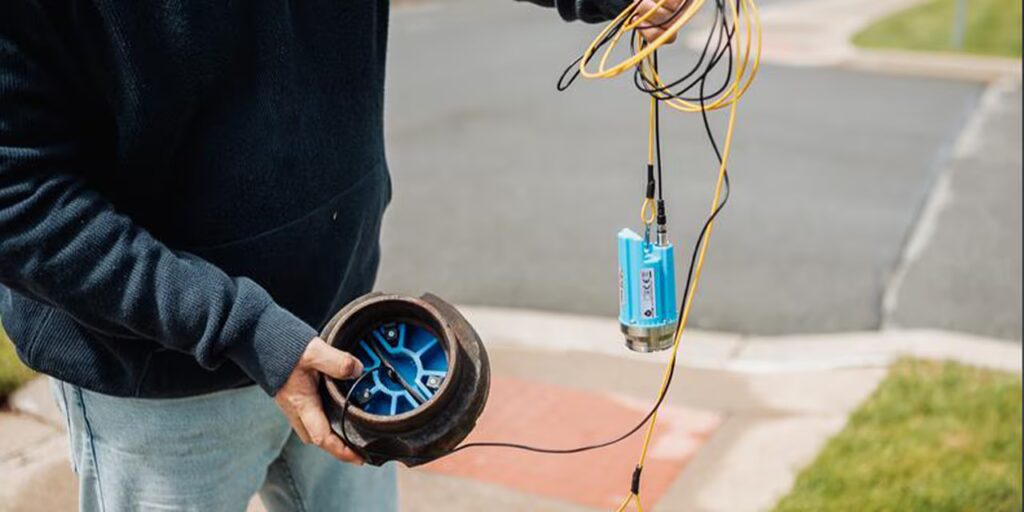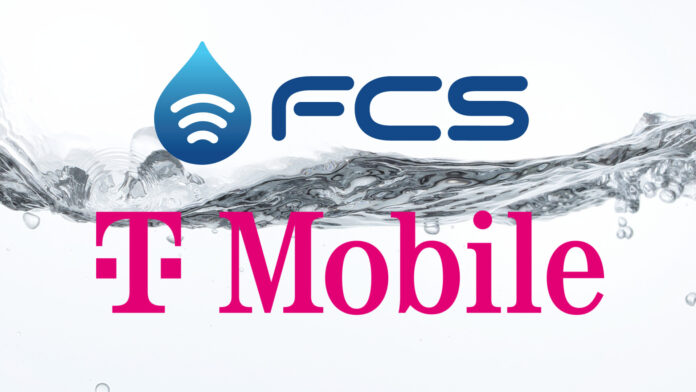Fluid Conservation Systems (FCS) is working with T-Mobile US to add IoT connectivity to its acoustic water leak detectors, enabling continuous remote monitoring, reducing manual inspections, and improving efficiency and intelligence.
In sum – what to know:
Cellular IoT – FCS connects long-standing acoustic water leak solutions to T-Mobile’s IoT network.
Lots of savings – cellular replaces manual hydrant-to-hydrant inspections, improving efficiency.
Urgent need – partnership tackles water loss from ageing infrastructure, and brings environmental impact.
US-based leak detection tech provider Fluid Conservation Systems (FCS) has picked T-Mobile US to supply IoT connectivity for its acoustic monitoring solutions. It is working with the US carrier’s business division to connect its acoustic data loggers, around for 40 years already, to reduce manual spot checks, and to be able to connect sensors even in remote locations. It is unclear which IoT connectivity technology FCS has plumped for, but T-Mobile US still supports NB-IoT (unlike AT&T, of course), as well as LTE-M, and standard 4G-LTE and 5G for high-powered IoT.
T-Mobile US has launched a reduced capability 5G (5G RedCap) service in the US, as well – for in-between IoT cases. The company flagged its ‘best mobile network’ award in the US from Ookla, which is based on ‘speedtest intelligence’. Clearly, IoT is more about coverage, reliability, efficiency, and cost – than it is on speed. The press statement talked mostly just about the advantage of connecting fleets of water leak detectors for remote data management and insights, even in out-of-reach basements and far-off rural pastures.
FCS said it “pioneered” acoustic water leak detection technology 40 years ago, and works with US utilities already. Its loggers, rugged acoustic sensors, attach to the external surfaces of water pipes; they measure the noise emitted by water systems, and identify leaks based on “unique acoustic signatures”. Their wireless connectivity is brand new, it seems – that T-Mobile US is not simply replacing another provider. “Monitoring is continuous, automated, and highly precise – substantially reducing the need for costly manual inspections,” they said in a statement.
Whatever, they make play of the range of T-Mobile’s network in the US – to provide coverage of traditional black-spots and not-spots, and to bring new reliability and deployment scenarios, potentially. They said: “FCS sensors can [now]send critical data even from difficult-to-reach locations, such as mountainous or remote areas, helping to overcome traditional coverage limitations. Previously, detecting leaks required extensive manual labour with teams walking hydrant-to-hydrant using handheld ground microphones.”
They added: “Now, FCS can transmit acoustic data directly from sensors in the ground, enabling utilities to significantly reduce labor costs and quickly address leaks before they cause substantial damage.” The loggers are higher-priced as a consequence – presumably – but a connected solution brings better management flexibility and insights, and reduces the cost of manual interventions. The duo talked about “efficiency and cost savings”, as well as environmental benefits.

They stated: “Water infrastructure in the US faces substantial challenges, including ageing pipes and persistent leaks that often go unnoticed until they cause significant loss. Traditional leak detection methods often rely on visible evidence or random sampling, leading to inefficient maintenance practices and unnecessary disruptions… The American Society of Civil Engineers [says] approximately 33.3 trillion gallons of water are lost annually due to deteriorating infrastructure – enough water to supply New York City’s usage for more than 91 years.”
Beth Powell, president at Fluid Conservation Systems, commented: “Water utilities across the country struggle with aging infrastructure, hidden leaks, and limited resources. Our acoustic leak detectors, connected by T-Mobile, give utilities real-time data to accurately pinpoint leaks before they become costly problems. We’re essentially listening for leaks overnight, so our customers can wake up each morning knowing exactly where to focus their efforts.”
George Fischer, senior vice president of sales at T-Mobile’s business group in the US, said: “FCS’s acoustic leak detection with T-Mobile sets a new standard in water management, proactively addressing leaks and conserving vital resources. This collaboration underscores our commitment to innovation, resilience, and protecting critical infrastructure nationwide.”

